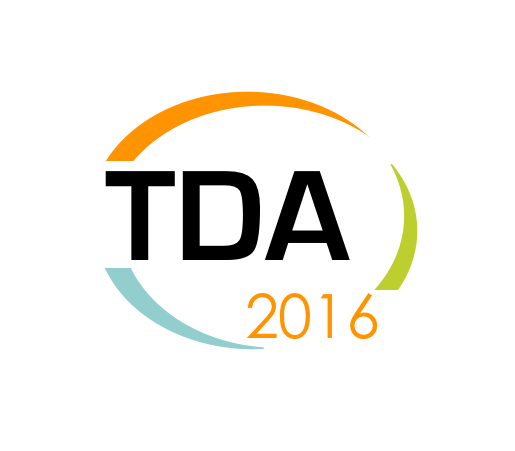Welcome to the First International Workshop on Technical Debt Analytics
NEWS Registration in now open!! Note: TDA is a full-day workshop, when registering only for the workshop please select one of the following options: Full Day Workshop or Tutorial Only OR Full Day Workshop or Tutorial Only - Student
A draft program is now available
An open challenge in Technical Debt (TD) research is to translate TD threats into economic opportunities, so development teams can make a strong case to the business side to invest on paying off TD by increasing Technical Wealth (TW). For this, a comprehensive TD/TW theory (e.g., standardizing ambiguous terms into a consistent vocabulary) is needed to formalize and consolidate relationships between the costs of technical debt and benefits of technical wealth. We aim to gather practitioners and researchers working in this area, to share experiences, concur on terminologies and evaluation guidelines.
The workshop will offer a specialised arena in TD to address the following goals:
- Calibrating technical debt and technical wealth related terminologies and concepts that are used indistinctly and interchangeably in software engineering literature.
- Comparing, integrating, compiling and even reconciling empirical work on the effects of technical debt/technical wealth from economic and organisational perspectives.
A ![]() printable call for papers is available. Thanks for helping us advertise the workshop!
printable call for papers is available. Thanks for helping us advertise the workshop!
Topics of Interest
We are interested in all topics that help address the goals of the workshop outlined above, including but not limited to:- frameworks/methodologies to compare/synthesize empirical studies on TD/TW;
- moderator factors for empirical studies on TD/TW;
- frameworks for comparing approaches and tools for TD detection and TW improvement;
- conceptual and technical differences between approaches for analyzing or managing TD/TW;
- cross-comparison of terminologies used in the body of knowledge on TD/TW;
- social debt-related factors (e.g., social or organisational shortcomings) affecting TD/TW.
Submission guidelines
Participants are invited to submit a position paper of 2-4 pages or a 1 page abstract for a lightning talk on the workshop topics. All submissions will be peer-reviewed and judged on the basis of their clarity, relevance, and interest to the workshop participants. At least one author of each accepted paper has to register for the workshop. Paper submissions must be in English and conform to the IEEE Double Column format: http://www.ieee.org/conferences_events/conferences/publishing/templates.html
Papers are to be submitted electronically to the TDA EasyChair paper submission system (https://easychair.org/conferences/?conf=tda2016)
The workshop proceedings will be published at CEUR-WS, which is indexed by dblp.
Important Dates:
- Paper submission:
October 22, 2016October 30, 2016 (AoE) (extended) - Acceptance notification: November 09, 2016
- Camera-ready version: November 19, 2016
- Workshop: December 06, 2016
Keynote Speaker
Ewan Tempero - University of Auckland, New Zealand
Title
Towards quantifying technical debt
Technical debt (TD) is a metaphor that comes from the financial world, however it breaks down almost immediately. In the financial world when considering taking on debt, we can use a financial planner to determine such things as what our regular payments need to be and what the total cost of the loan will be. In software development, those making a decision that creates TD have no idea how much debt they are taking on, and often do not even realise when they are taking on some debt. For the metaphor to be useful, we must develop the means to quantify TD, in particular to be able to do so before we take on TD.
In this talk I will discuss the current status of measuring TD and present some ideas as to what we have to do to develop the necessary tools to properly manage TD, specifically what we need to do to quantify TD.
Speaker Bio
Ewan Tempero is an Associate Professor in the Department of Computer Science at The University of Auckland, New Zealand. He graduated from the University of Otago, New Zealand, with a B.Sc., (Honours) in Mathematics in 1983 and received his Ph.D. in Computer Science from the University of Washington, USA, in 1990. He has published over 170 papers in journals and internationally-refereed conferences, mainly in the areas of software reuse, software tools, and software metrics. His current research is developing metrics for measuring the quality of software designs. He is the developer and maintainer of the Qualitas Corpus
Organizers- Aiko Yamashita (CWI, Netherlands & Oslo and Akershus University College, Norway)
- Leon Moonen (Simula Research Laboratory, Norway)
- Tom Mens (University of Mons, Belgium)
- Amjed Tahir (Massey University, New Zealand)
Program Committee
- Alexander Chatzigeorgiou (University of Macedonia, Greece)
- Andrea Capiluppi (Brunel University, UK)
- Davide Falessi (California Polytechnic State University, USA)
- Diomidis Spinellis (Athens University of Economics and Business, Greece)
- Eleni Constantinou (University of Mons, Belgium),
- Fabio Palomba (University of Salerno, Italy)
- Foutse Khomh (École Polytechnique de Montréal, Canada)
- Francesca Arcelli Fontana (University of Milano Bicocca, Italy)
- Gregorio Robles (Universidad Rey Juan Carlos, Spain)
- Ipek Ozkaya (Software Engineering Institute - Carnegie Mellon University, USA)
- Marouane Kessentini (University of Michigan–Dearborn, USA)
- Mel Ó Cinnéide (University College Dublin, Ireland)
- Nikolaos Tsantalis (Concordia University, Canada)
- Paris Avgeriou (University of Groningen, the Netherlands)
- Steve Counsell (Brunel University, UK)
- Yann-Gaël Guéhéneuc (École Polytechnique de Montréal, Canada)
Contact
You can contact us for questions, commends and feedback at: tda2016@googlegroups.com
Follow us on Twitter at @tda2016
Tweets by TDA2016